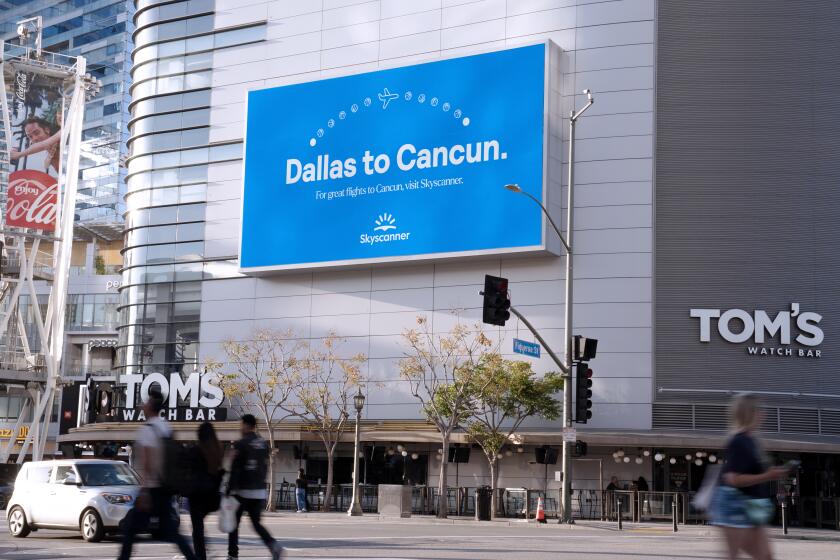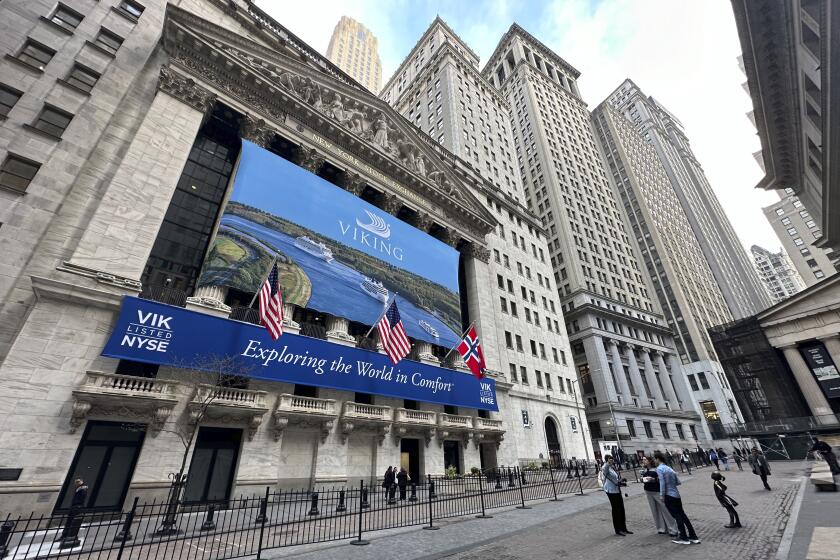Savings Rate Falls to Almost Zero
For more than a decade, Americans have been spending more and saving less. In June, people spent virtually everything they earned and saved almost nothing.
The government reported Tuesday that the nation’s savings rate fell to a paltry 0.02%, the second-lowest monthly rate since the Great Depression.
June’s rate was eclipsed only by the minus-0.2% rate in October 2001, after the Sept. 11 terrorist attacks, when consumers enthusiastically responded to patriotic promotions from auto companies.
Economists offered a variety of reasons for June’s spending spree, including rising home prices that have provided a source of cash, deep discounts offered by car companies and easy access to credit cards.
“Americans like to spend,” said Andrew Tilton, an economist at Goldman Sachs. “Most consumers spend up to the limit.”
And coming at a time when much of the baby boom generation is in its prime earning and saving years, it raises alarms about its ability to manage retirement.
“People won’t be able to retire, so they won’t,” said David Kelly, managing director of Putnam Investments in Boston.
For the first six months of 2005, the nation’s savings rate averaged 0.4%, meaning that Americans spent 99.6% of their after-tax earnings. It is a trend that has fueled economic growth since the 1991 recession, but it also has contributed to a massive U.S. trade deficit with the rest of the world.
The savings rate was part of a Commerce Department report Tuesday showing that consumer spending rose 0.8% in June, after a 0.1% decrease in May. But personal incomes rose by only 0.5% in June, up from 0.2% the previous month, resulting in the historically low savings rate.
Car and light-truck sales reached a record annual rate in October 2001 of 21.7 million, eclipsing the 21.2 million during a promotion in September 1986. By contrast, sales reached an annual rate of only 17.5 million this June, suggesting that the car companies alone were not responsible for the near-zero savings rate.
Kelly said preliminary data suggested that car and light truck sales might exceed an annual rate of 20 million in July. He said that could propel the national savings rate into negative territory for the month.
Earnings by Americans for the year, based on figures for June, totaled $9.055 trillion after taxes. The annual savings, based on the month’s figures, totaled $1.9 billion, according to the Commerce Department.
Economists have long considered the absence of personal savings to be the disturbing underbelly of the consumer spending that led the economy to a record-long expansion in the 1990s and pulled it out of the 2001 recession.
Businesses rely on savings for the investments that enable them to grow, and the government is running huge deficits that are soaking up a large share of investment dollars.
Stephen S. Roach, chief economist at Morgan Stanley, said the absence of personal savings in the United States contrasted sharply with the practice in other countries, particularly in Asia. They save a great deal and rely on the U.S. market to buy their products.
The result, he said, is a dangerous global imbalance in which China, Japan and other U.S. trading partners are accumulating dollars at an alarming clip as their trade surpluses with the United States grow.
China has huge holdings of U.S. Treasury securities, leading to fears of a tumbling dollar if China decided to unload its dollar-denominated assets.
Fears about China’s potential leverage over the U.S. economy were spotlighted by the recent offer by Chinese oil company CNOOC Ltd. to buy El Segundo-based Unocal Corp. CNOOC withdrew its bid Tuesday.
“For a world economy that looks stable on the surface, it is tempting to ignore the undercurrent of mounting tensions,” Roach wrote recently.
Tilton, of Goldman Sachs, said rising home prices in this decade, much like rising stock prices in the last, had made owners feel wealthy and sometimes led them to spend more -- and save less -- than they could afford. In many cases, the money comes from the home itself, through refinancing.
“People expect the housing market to keep rising,” he said. “It won’t.”
The run-up in housing costs, Tilton said, is mostly a phenomenon of the coasts, where land is limited.
“In Dallas, you can always spread out,” he said. “But real estate in Manhattan island or San Francisco is strictly limited.”






